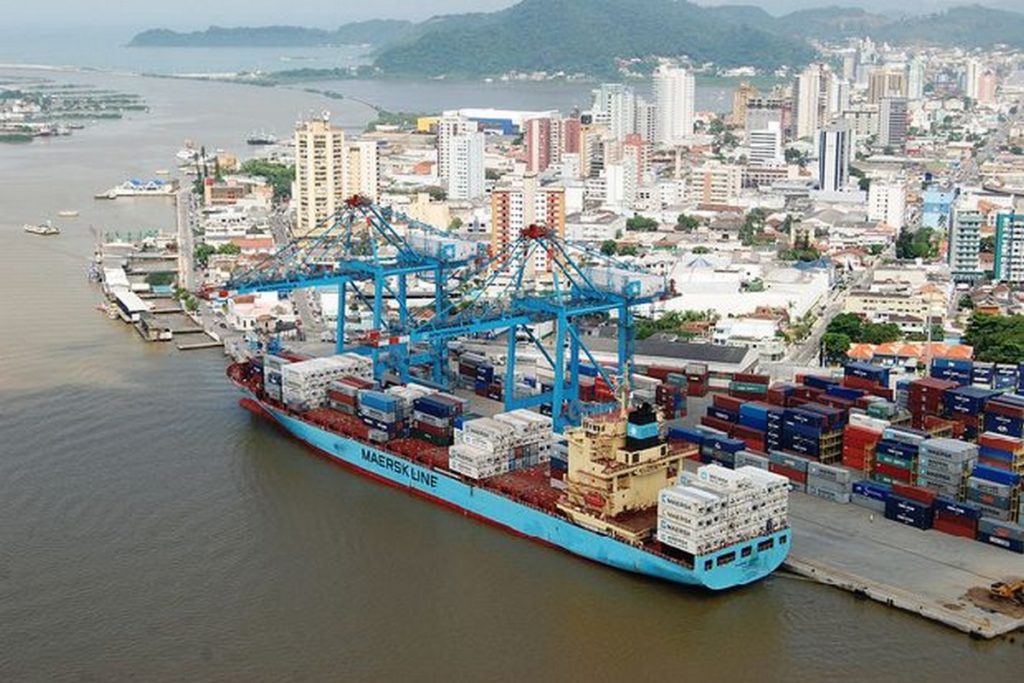RIO DE JANEIRO, BRAZIL – The sum of R$20 billion – a little more than US$3.5 billion – is the number of investments projected during the privatization or divestiture process of five port authorities in Brazil. This was detailed by Diogo Piloni, National Secretary of Ports of Brazil.
The senior official commented that “if we make a summation of the investments planned in these five projects, we are talking about R$20 billion that will be used to improve the infrastructure of our ports.”
“I would say that we are programming a new opening of Brazilian ports for, mainly, investments, not only from Brazilians but from foreigners as well. The Brazilian port sector is already extremely private since the 1990s, and almost all operation is private; therefore, we have quality and efficiency in port operation that is comparable to any world-class one, and we already have the world’s largest operators in Brazil in the most efficient conditions. We also have the vision that we need to evolve in the port authorities,” he added.

Piloni explained that “although we have efficient operations, the same efficiency in the roles played by the port authorities is not always achieved within a state management model. Now is a perfect moment, even in public management. We have in Santos, in Codesa, in CDRJ, in our port companies, executives who have done a great job, companies that for a long time were loss-making. Now they are in another moment, they are sustainable, they have the cash to make investments, but we must consolidate that moment. We believe that the concession, the privatization of ports will perpetuate that good current experience as we enter into long-term contracts.”
The secretary affirmed that in the new model, the concessionaire that manages one of the “Docas” (state-owned) port companies will have the authority to invest in access to channel expansions, dredging, ship infrastructure improvements, land accesses, among other functions.
“These private partners will be responsible for the management of the port complex; in other words, they will have the role of Port Authority. With that, we have, as part of the program, as priority projects by the Federal Government five companies: Companhia Docas do Espírito Santo, which has already concluded studies and expected to be auctioned early next year; São Sebastião, in the State of São Paulo; Itajaí, in the south of the country; the Port of Santos; and, in sequence, Companhia Docas da Bahia,”said Piloni.
Piloni also assured that the new model would be protected from government or public policy changes thanks to the existence of the regulatory agency ANTAQ, which he considered a mature State body, so there is an attractive scenario for investments and legal certainty.
The transfer of these public companies to a private company will be made. The rules will be applied so that this actor does not take advantage of its position as a port authority in front of other sector companies. Piloni expressed that a series of measures have been taken to safeguard the proper operation and that the presence of the State will also be maintained since the ports will not be sold, but only the companies that manage them.
“This is a mixed model. The ports will not be sold, the companies will be sold, but the asset remains public, which is important. In the Port of Santos, there is an area of eight square kilometers, so that area continues with its access channel, its land accesses, being assets of the federal government that will be reverted at the end of the concession contract to public power. What will be privatized is the company; that is, the Santos Port Authority will be transferred to private management,” he said.
“We have all the care to make that transfer with responsibility because we want it to be a good business for the private party, but we need to preserve the public interest within the port,” he added.
According to Piloni, from the federal government has also established a series of restrictions to mitigate the conflict of interest to avoid the abuse of economic power.
Thus, no operator may hold more than 10% of the share package, and, in the case of a consortium, it will not be allowed to obtain more than 40% of the shares.
The contracts also provide for the avoidance of market concentration in operation, for which restrictions will also be applied so that an operator may not exceed, for example, 50% of the share in the container area. With information from PortalPortuario

